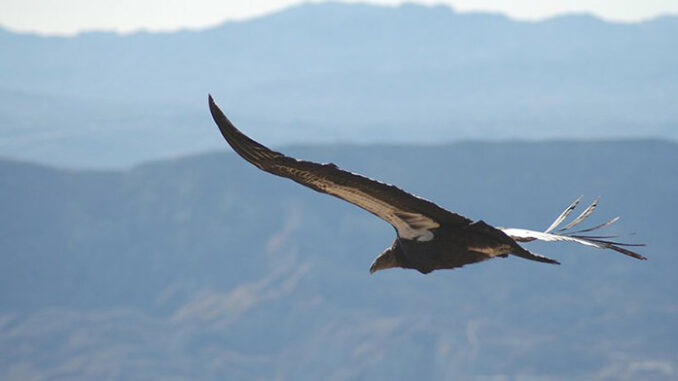
WASHINGTON – A federal appeals court Thursday ordered a new hearing for environmental groups trying to ban the use of lead shot in Kaibab National Forest that they said poses a threat to endangered California condors.
A three-judge panel of the 9th U.S. Circuit Court of Appeals said a district court was wrong to reject the lawsuit – for a second time – that claimed the U.S. Forest Service was “contributing to … disposal” of dangerous solid waste by not banning lead ammunition.
“We are hoping the ultimate outcome will be that they will create a policy that states that hunters have to use non-lead ammunition,” said Kelly Burke, executive director of the Grand Canyon Wildlands Council, one of the groups that filed the suit.
[metaslider id=65385]
Calls seeking comment from attorneys for the government and for hunting groups that opposed the suit were not immediately returned Thursday.
The case began in 2012 when the Wildlands Council, the Sierra Club and the Center for Biological Diversity filed suit under the Resource Conversation and Recovery Act. It cited a “citizens’ suit” provision of that law lets people file a claim against anyone, including the government, who has contributed to “handling, storage, treatment, transportation or disposal of any solid or hazardous waste” that poses a threat to the environment.
The environmental groups claim lead ammo poses that threat, but that the Forest Service is not stopping it on the North Rim of the Kaibab, a popular hunting destination and one of the few spots where endangered condors are found.
Because condors are scavengers, they are likely to “ingest lead ammunition left in animal carcasses by hunters,” according to the ruling, which said that even small amounts of lead “can cause significant adverse effects on animals’ health, even death.”
“This leads to having to treat the birds and occasionally to the death of the birds. It’s probably the one remaining threat,” Burke said.
California condors were nearing extinction, with just 23 remaining in the 1980s, when all remaining birds were placed in a captive breeding program. They began to be reintroduced into the wild in 1992. The U.S. Fish and Wildlife Service says there are now more than 400 condors, both captive and wild, and about 80 of those are flying over Arizona and Utah.
The latest court ruling said the Forest Service has the authority, but does not regulate the use of lead ammo and mostly defers to Arizona hunting regulations on national forests in the state. Arizona only bans lead ammunition for hunting waterfowl.
In an effort to reduce the lead threat to condors, the Arizona Game and Fish Department encourages the use of non-lead ammunition, the court said, and makes such ammo available to hunters for free during the big-game hunting season.
Burke said that voluntary program has had “a lot of good response and a fairly decent percent of compliance,” but that the small amount of hunters still using lead ammunition are enough to be a threat to the condor’s recovery.
“Even if 80% complied, that still leaves enough people using lead to create problems,” she said.
The first time the groups filed suit, their claim was rejected by a federal district court. The appeals court reversed that ruling in 2016 and ordered the lower court to rehear the case, which it did – rejecting the lawsuit a second time on different grounds.
The district court ruled the second time around that it did not have the authority to order the Forest Service to ban lead ammunition, that the agency would have the discretion to ignore such an order. The circuit court disagreed.
“Whatever discretion USFS otherwise has regarding regulating – or not regulating – hunting in the Kaibab, the agency would have to comply with an order from the court regarding the disposal of lead bullets in the Kaibab,” said ruling by Circuit Judge Marsha S. Berzon.
It reversed the district court and ordered it to hear arguments in the case.
Burke said her organization is optimistic about the ruling and is hoping it can force a change in policy. She stressed that the lawsuit is an important step to protect not only the condors, but other species – including humans.
“For humans, it’s a very significant problem eating the meat from the deer if it’s contaminated with disseminated lead,” Burke said.
